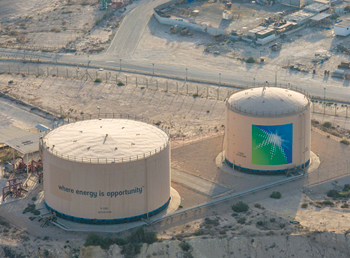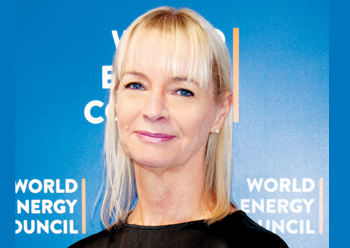
 Wilkinson ... energy for all
Wilkinson ... energy for all
Amid the global push towards an ambitious net-zero world, an influential voice on energy and sustainable development has called for a fair energy transition so that no community is left behind.
Dr Angela Wilkinson, Secretary General and CEO of World Energy Council (WEC), noted that the numerous top-down roadmaps on climate-related action require humanising, with more detail about their actual implementation.
'There is an increasing proliferation of roadmaps, full of promises about accelerating technology and tipping points and yet empty of details on people, uses and behaviours,' said Wilkinson, an experienced energy executive, a distinguished Oxford scholar, and a published author.
Her concerns came at the 54th edition of the GECF Gas Lecture Series, entitled ‘Humanising Energy’.
Wilkinson stated the Covid-19 crisis was a reminder that the future of energy is a much bigger story than technology. 'The gaps between energy haves and have nots have grown wider in this crisis and this pattern is evident in all regions and countries,' she said.
Furthermore, Wilkinson said the better energy solutions were not a matter of colour (green or blue) but that they must meet the needs of the many, not only the wealthy few.
'That’s why we see the need for capital markets to rethink and rebalance the ‘S’ in environmental, social and governance (ESG) reporting which is impacting investment flows to energy.'
She noted that renewables will need other energy 'friends' and flexible storage solutions to be widely and readily available. 'Molecules, as well as electrons, will play a key role in the future of energy. Natural gas in its various forms has an important role to play as a transition bridge to the climate neutral energy future.'
Seconding Wilkinson’s thoughts, GECF Secretary General Yury Sentyurin, said: 'We believe in accepting change, but we do believe in change that is meaningful and beneficial to the most number of people on this planet.'
He said it was the right of countries, particularly the developing economies, to have access to abundant, affordable and clean source of energy.
'We don’t condone restriction of energy policies and directing investment resources towards expensive decarbonisation options and technologies, some of which are yet to be proven. This can substantially affect the security of supply and prevent countries from accessing competitive and clean energy sources, such as natural gas, which is compatible with sustainable development,' he said.









































































